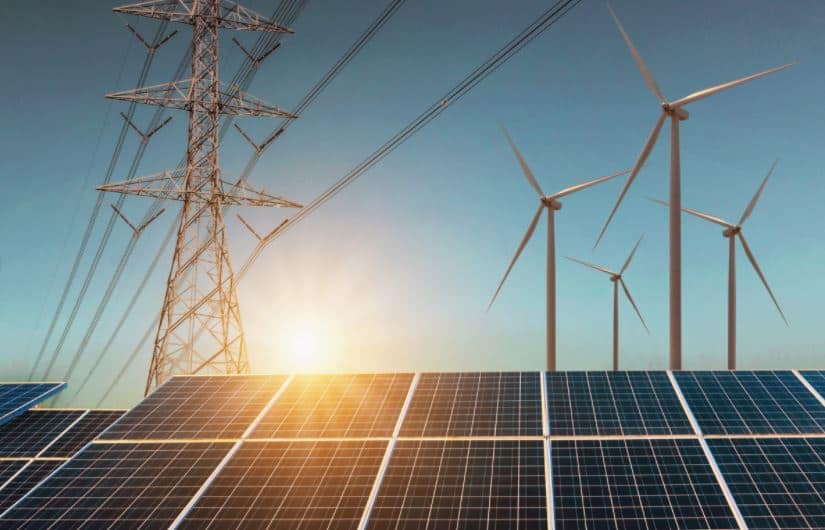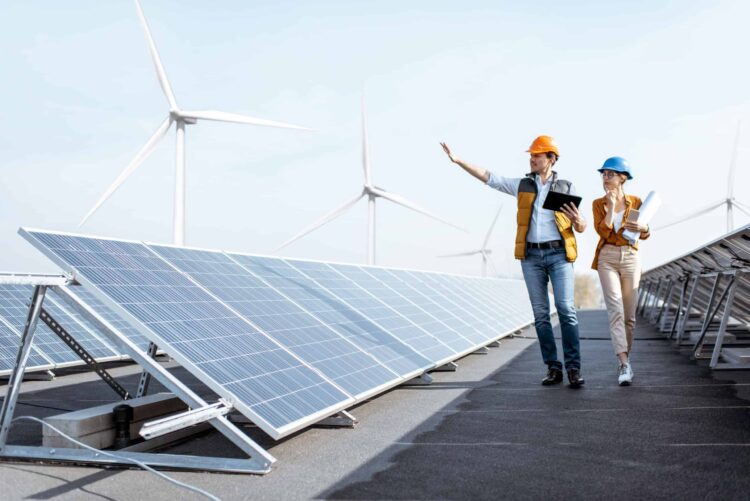Alberta’s pause on approval of new wind and solar projects

The original form of this article appears in our Energy Playbook: 2023 Year in Review. Download the free ebook.
Alberta’s six-month pause on the approval of new wind and solar energy projects came to an end on February 29, 2024. However, applicants now face a bevy of new requirements. This is a brief summary of what you need to know.
Why a pause?
In a much publicized move, during August 2023, the government of Alberta directed the Alberta Utility Commission (AUC) to conduct an inquiry into the economic, orderly and efficient development of electricity in the province. Concurrently, the AUC announced a pause in the approval of new applications for wind and solar generation projects that produce more than one MW of energy until February 29, 2024.
The inquiry was to review the following considerations (OC 171/2023):
- The development of power plants on agricultural and environmental land
- The impact of power plant development on Alberta’s pristine viewscapes
- Implementing mandatory reclamation security requirements for power plants
- Development of power plants on lands held by the Crown
- The impact of increasing growth of renewables on both generation supply mix and electricity system reliability
Alberta’s booming renewables sector has been a topic of debate in rural areas where municipalities have expressed concern about the loss of agricultural land to wind and solar projects. Municipalities are also concerned that investors could walk away from renewable developments once they reach the end of their productive lives. This could leave municipalities saddled with the costs of remediating bankrupt renewables sites, similar to the situation with orphan gas wells.
Supply mix and system reliability came into focus during late August 2023, when the Alberta Electric System Operator (AESO) issued a Level 3 grid alert. During a grid alert, customers are asked to curtail usage and the AESO uses emergency measures to balance the system. The AESO said the power system was under stress due to a combination of hot weather, low wind energy generation and a power outage in B.C. that impacted the intertie capability. The load on the grid reached a peak of 11,188 MW and the pool price for electricity rose to $999.99 per MWh.
The grid alert was cancelled the next morning and the pool price returned to a normal range of $50 to $72 per MWh. Grid uncertainty has continued through the winter months. On January 13, 2024, due to increased pressure on the grid due to a period of extreme cold, the AESO issued an emergency alert asking Albertans to limit electricity use to essentials only. Rotating power outages did not occur, but according to the AESO, the province’s energy grid had as little as 10 megawatts of reserve power at one point on January 13.
The AUC process
According to the AUC, 30 developments were directly impacted by the pause. While the pause was in effect the AUC continued to process applications for new projects up to the approval stage. The AUC supplemented its current rules with new, interim information requirements relating to issues such as agricultural land, viewscapes and reclamation security. The pause did not affect some 3,400 MW of wind, solar and energy storage projects reported to be under construction in the province in 2023, which have already received approval.
Most of the issues assigned to the ACU for study were considered during Module A of the review. The AUC received five expert reports on these subjects and comments from interested parties were invited. Three open house sessions were held during November 2023 in Red Deer, Medicine Hat and Pincher Creek.
Module B of the review, still underway, is examining the impact the increasing growth of renewables on generation supply mix and electricity system reliability. The AUC has received two expert reports on the subject, which were published on February 7, 2024, and is considering complementary work underway by the Alberta Electricity System Operator. A technical meeting was held on February 14, 2024, and written submissions on the expert reports were required to be submitted by February 29, 2024.
The new policy
The government of Alberta has now issued a news release with policy guidance, generally taking effect March 1. The exact policy details are outstanding, but the government of Alberta has announced changes that include the following:
- Agricultural land use: Agriculture takes precedence over any new renewable generation developments, with such developments no longer permitted on Class 1 or 2 agricultural lands unless it is demonstrated that crops and/or livestock can coexist with the project on the land.
- Reclamation security: Developers are responsible for reclamation costs via either bond or security, with the specific standards to be determined later this year (retroactive to March 1, 2024).
- Viewscapes: “Buffer zones” of a minimum of 35 km will be established around “pristine viewscapes” as designated by the province.
- Crown Lands: Renewable development has not previously been permitted on Crown Lands and will be considered on a case-by-case basis, with such policy changes expected to come into effect in late 2025.
- Municipalities: Municipalities are now automatically granted the right to participate in AUC hearings on renewable energy projects and may be eligible for cost recovery for such participation.
- Transmission regulation: Renewable energy projects “should expect changes in how transmission costs are allocated.” The exact nature of these changes has not yet been determined.
The AUC has released Bulletin 2024-03 with updates to the application review process, including noting that the interim information requirements will continue to be in effect.
And more to come
The recent announcements are outcomes of Module A of the AUC review. The AUC says that it delivered its report on Module A to the Minister by January 31 as directed by the government’s order-in-council. We may expect further announcements once Module B of the review is completed, dealing with the reliability of Alberta’s electrical grid.
The exact nature of the new government policies remains outstanding, creating further uncertainty for renewable energy developers in Alberta. We will continue to monitor the situation and any further developments.
Note: This article is of a general nature only and is not exhaustive of all possible legal rights or remedies. In addition, laws may change over time and should be interpreted only in the context of particular circumstances such that these materials are not intended to be relied upon or taken as legal advice or opinion. Readers should consult a legal professional for specific advice in any particular situation.




